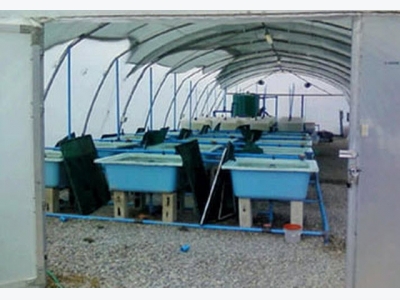How to start your own aquaculture business – part 2

In this second instalment of our series on launching an aquaculture business, we look at what steps to follow once a beginner has secured a basic knowledge of fish biology and system design.
A fish culture project at hobbyist or research level is not applicable to commercial extrapolation. Photo: Nicholas James
My last article examined how novice fish farmers might get started in aquaculture. Let us now examine what should be done once the entrepreneur is familiarised with a certain level of basic fish biology and system design.
Learning to be a fish farmer is best done on the job, and as most aquaculturists know, the road to success is often paved with the bodies of dead fish. Learn from it and move on.
It would be wise to invest in a training course: there are a number of good local options available. If the idea is to start with a pilot system that will teach the novice fish farmer the basics, with a view to expanding into the commercial sector later, don’t start too small.
It is also important to not cut corners with the design of the system. Here, questions arise: what works in theory, what works in practice, and what is claimed to work by a system designer? There is no easy answer, because everyone has his or her own method.
The key is track record. If a system looks great – it is an impressive plumbing ‘masterpiece’ – or if the yield it claims to produce seems economically attractive, ask yourself two questions: where are the successful examples in production, and why are there not more like them?
It’s worth investing in quality
A commercial pilot-scale venture should not be smaller than a 30m x 10m tunnel system. Considering the appropriate grow-out tanks and filtration, fish and feed, the beginner farmer is looking at an investment of around R300 000 to R400 000.
Cutting corners by using substandard filtration, non-self-cleaning tanks and poor-quality fish stock will not give the intended results.
Different challenges
Beginner fish farmers in different parts of the country often face different environmental challenges in terms in climate, appropriate technology and markets.
If a prospective farmer envisages a project in the Lowveld regions of Limpopo, Mpumalanga or northern KwaZulu-Natal, and has abundant water resources, the option of open-pond culture may exist. In other frost-free areas, recirculating systems in greenhouse tunnels may be viable.
However, realism must prevail, and prospective projects in the coldest parts of the Highveld, for example in parts of the Free State and south of Johannesburg in Gauteng, have little commercial potential due to the high energy costs involved in keeping the fish alive – let alone growing them economically.
A ready market for a quality product
Marketing is often seen as an unknown factor by beginners. As tilapia are not yet widely traded in South Africa, the distribution network is not well-established.
However, tilapia is an internationally traded product of high quality; it is not a trash fish competing with the lowest grade marine products.
North Africans and immigrants from elsewhere on the continent are familiar with tilapia. Red tilapia is a fine product that can compete at any level, especially in city markets.
Related news
 How to Build a Farm Pond
How to Build a Farm Pond Farmers build ponds for many reasons: Irrigation, water for livestock, fire protection, erosion control, aquaculture, wildlife value, recreation and aesthetics
 Pond Construction: Some Practical Considerations
Pond Construction: Some Practical Considerations Conservative estimates place the correct number of farm ponds in Virginia at over 50,000. These ponds range in size from less than one acre to over 30 acres in
 Seaweed supplementation said to boost immunity in fish
Seaweed supplementation said to boost immunity in fish Adding supplemental seaweed to farmed fish diets could boost immune functioning and antioxidant responses.